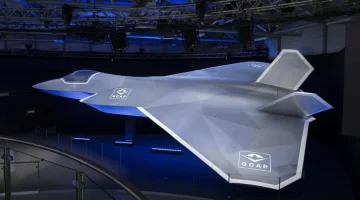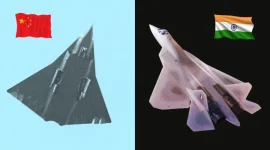- Views: 1K
- Replies: 12
Professor Dr. Zafar Nawaz Jaspal, a prominent defence analyst from Quaid-i-Azam University in Islamabad, has voiced concerns over India's rapid progress in advanced military technologies, including hypersonic missiles, artificial intelligence (AI), multiple independently targetable reentry vehicles (MIRV), and ballistic missile defence (BMD) systems. Dr. Jaspal warns that these advancements could destabilize the regional strategic balance and escalate security tensions.
Of particular concern is India's pursuit of hypersonic missiles, which travel at speeds exceeding Mach 5 and are highly maneuverable, posing a significant challenge to conventional defence systems. India's successful tests of the Hypersonic Technology Demonstrator Vehicle (HSTDV) underscore its commitment to operationalizing this technology. Dr. Jaspal emphasizes that hypersonic missiles would grant India the capability to conduct rapid, precise, and evasive strikes, potentially altering the regional security landscape.
Furthermore, Dr. Jaspal highlights India's focus on integrating AI into its military applications. AI has the potential to revolutionize warfare, enhancing data analysis, decision-making, and enabling autonomous systems for both offense and defence. India's investments in AI could lead to advancements in autonomous vehicles, surveillance systems, and cybersecurity, further modernizing its defence infrastructure.
Adding to the concerns is India's development of MIRV technology, which allows a single ballistic missile to carry multiple nuclear warheads, each capable of striking different targets. While unconfirmed by official sources, there is speculation that India's Agni-VI missile may possess MIRV capabilities. If deployed, MIRV-equipped missiles would significantly enhance India's nuclear deterrence and complicate defence strategies for Pakistan.
India's progress in ballistic missile defence (BMD) is also highlighted by Dr. Jaspal. India's two-tier BMD system, designed for both high-altitude and low-altitude interceptions, has undergone successful tests. Once operational, this system would provide India with a robust defence against incoming missile threats.
Dr. Jaspal's concerns resonate with a broader anxiety in Pakistan regarding India's military modernization. Pakistani defence experts are closely monitoring these developments, with many fearing an arms race as Pakistan strive to counter India's growing military prowess.
However, Indian officials maintain that these advancements are in line with India's policy of "credible minimum deterrence" and are aimed at safeguarding its national security interests in a complex geopolitical environment. India views its defence modernization as essential to address regional and global threats.


